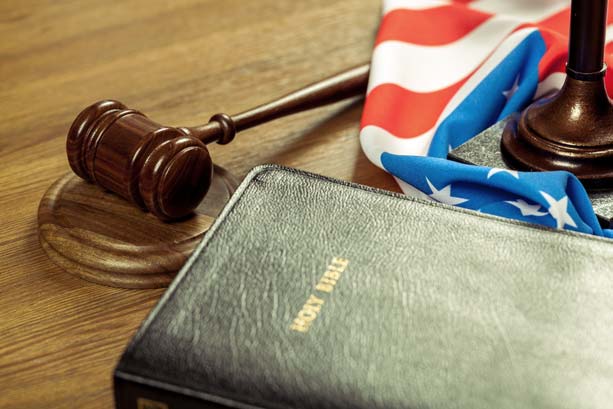
In private practice, Kavanaugh backed the government when it sought to support religious interests and challenged schools when they attempted to exclude religious groups.
Together, legal experts say, these cases suggest he would continue the court's steady shift from a strict separation between government and religion to a far more permeable relationship - a matter with implications for public and private schools.
Kavanaugh is the product of religious education. He graduated from Georgetown Preparatory School in Maryland's Montgomery County, a Jesuit school where every class begins with a prayer. His daughters attend Blessed Sacrament, a Catholic school in the District of Columbia.
As he was introduced Monday at the White House, though, Kavanaugh pointed to his mother's work as a history teacher at two public schools in the District in the 1960s and '70s, McKinley Tech and H.D. Woodson, before she went to law school.
"Her example taught me the importance of equality for all Americans," Kavanaugh said.
Kavanaugh's views on schools and religious liberty are among those being scrutinized by supporters and opponents as the Senate prepares to consider his nomination to the high court.
To backers, his advocacy of religious interests shows his understanding of what the framers of the Constitution intended. Justin Walker, one of his former clerks, called Kavanaugh a "warrior for religious liberty." Tony Perkins, president of the conservative Family Research Council, praised Kavanaugh as a buffer against "a growing assault on religious freedom" that he said developed during the Obama administration.
But Americans United for Separation of Church and State, an advocacy group, said Kavanaugh's record shows he will not uphold the separation of government and religion, which the group called the "linchpin of religious freedom."
Kavanaugh also drew swift opposition from teachers unions.
"Judge Kavanaugh can't be trusted to protect the interests of students and educators," said Lily Eskelsen GarcĂa, president of the National Education Association, the nation's largest union. Her reasons included the judge's support for "rulings and legal theories that justify allowing public money being funneled into religious institutions."
As a judge on the U.S. Court of Appeals for the District Circuit, Kavanaugh penned few opinions directly related to education. But as a private attorney, he waded into several religious liberty cases involving schools.
In 1999, he wrote an amicus, or friend of the court, brief on behalf of two Republican members of Congress backing a Texas high school's decision to allow student-led prayers over the public address system at football games. The brief argued that students were delivering their own messages, not speaking on behalf of the school.
"If the student speaker must avoid 'prayer,' as respondents demand, does that mean all references to God? What about references to the 'Father'? The 'Father above'? Must the student avoid a reference to 'our Creator'? Can the student ask the crowd to observe a moment of silence for the crowd 'to pray' as they wish?" he wrote. "Who knows."
The Supreme Court ruled the policy unconstitutional, 6 to 3.
In 2001, Kavanaugh was on the winning side in arguing that a Christian group called the Good News Club had the right to use public school facilities for its meetings. In an amicus brief, Kavanaugh wrote that it was unconstitutional to treat a religious group differently from others. The club prevailed, 6 to 3.
Around the same time, Kavanaugh represented then-Florida Gov. Jeb Bush, R, in his effort to establish a school voucher program that would fund private schools, including religious institutions. The program was ultimately struck down by the Florida Supreme Court.
And last year, he delivered a lecture praising William Rehnquist, the late chief justice, for helping to dismantle the idea that "a strict wall" separates church and state.
There is no high-profile case on religion and schools awaiting the next Supreme Court justice. Last year, the Supreme Court ruled that a Missouri grant program funding playground improvements could not exclude religious schools.
The court has not ordered that states must include religious schools in more sweeping voucher programs. But it will eventually be forced to grapple with this question, predicted Derek Black, a law professor at the University of South Carolina, who studies constitutional law and education rights.
"With playgrounds, who cares? That's fine. But when we are talking about money for K-12 education for 12 years, that means public money will be used to teach the Bible," he said.
John Taylor, a law professor at West Virginia University, said that 37 states have clauses in their state constitutions that bar the use of government money for the "aid" or "benefit" of religious schools, and that's why many states do not allow religious schools to benefit from voucher programs.
"If I'm a betting man, I'd bet a substantial sum of money that Kavanaugh would be of a view that religious groups have a free-exercise right to participate in any kind of general public funding program," he said.


 Contact The Editor
Contact The Editor
 Articles By This Author
Articles By This Author